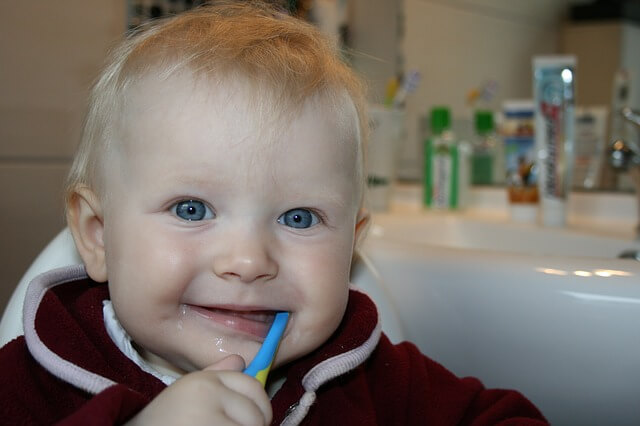Did you know that tooth decay is one of the most common childhood diseases? According to the CDC, about 20% of children have at least one untreated cavity at any given point.
Teaching your children to have good oral hygiene from a young age helps them develop good habits that they can carry into adulthood. These habits can help prevent tooth decay and gum disease in the future.
To start developing these good habits, consider getting your child a pediatric dentist. Pediatric dentists specialize in providing dental care for infants, children, and teens.
When your child is young, you probably are going to have a lot of questions about how to develop good oral hygiene habits. Keep reading to learn about nine important questions you should ask your child’s pediatric dentist.
1. When Should My Child Start Seeing a Dentist?
This is one of the most common questions that pediatric dentists get. According to the American Academy of Pediatric Dentistry, a child should see their pediatric dentist for the first time around their first birthday.
There is no such thing as starting your child’s oral care too early. Even if they don’t have their first tooth, it is best to go ahead and schedule their first pediatric appointment.
2. How Often Should My Child See the Pediatric Dentist?
Just like adults, children should visit their pediatric dentist every six months for a cleaning and a check-up. In addition to scheduling a routine cleaning, there are some other signs that your child may need to see the dentist.
Here are some common signs that your child needs an appointment:
- Pain
- Bad breath
- Bleeding gums
- White spots on teeth
- Clicking noise from the jaw
- Sensitive teeth
If you notice any of these symptoms between your child’s six-month check-up, schedule an appointment right away. You don’t want your child to be in pain or delay getting treatment!
3. When Do I Start Brushing My Child’s Teeth?
You should begin taking care of your baby’s teeth as soon as the first tooth appears. For babies younger than 18 months, use a dental wipe or a soft, wet washcloth to wipe their teeth off. You should do this twice per day.
As your baby gets a little bit older, you can introduce them to the idea of a toothbrush and toothpaste. Be sure to use a toothbrush that is soft and meant for babies.
4. Is Thumb Sucking Bad For My Child’s Teeth?
Children often use thumb sucking and pacifiers for comfort and to help them feel secure. While this habit may help your baby stay calm, it can cause damage to adult teeth if the habit is not changed by the time permanent teeth come in.
If you are worried about these habits impacting your child’s teeth, speak to your pediatric dentist. Tell them about your child’s habits and ask them to check if thumb sucking is currently impacting your child’s teeth.
5. What Type of Toothpaste Should My Child Use?
Children that are anywhere from two to six years old should use toothpaste that is low in fluoride or fluoride-free. This is because they are likely to swallow toothpaste. Fluoride is not safe to be consumed in large amounts.
Once your child is around five or six years old and has learned not to swallow toothpaste, they can start using toothpaste that contains fluoride.
6. Can You Teach My Child How to Brush Their Teeth?
Teaching a child how to brush their teeth can be difficult! If you aren’t sure how to teach your child the best way to brush their teeth, your pediatric dentist can help.
Pediatric dentists specialize in children’s oral health and are experts at teaching children the proper way to clean their teeth.
7. When Should My Child Start Flossing?
Children should start flossing when they no longer have visible gaps between their teeth. This time frame will be different for every child.
The best way to make sure that your child starts flossing at the right time is by having a pediatric dentist look at your child’s teeth. Dentists can tell exactly when a child is ready to start flossing.
8. What Should I Do if My Child Breaks a Tooth?
Children tend to get hurt while playing all the time. What do you do when your child falls and chips a tooth?
If your child happens to break a tooth, you should schedule an appointment with your pediatric dentist right away. A pediatric dentist will be able to evaluate the tooth to see how bad the damage is.
After looking at your child’s tooth, the dentist will be able to decide how to best treat the chipped tooth. Treatment could range from smoothing out the chipped tooth to removing the tooth altogether.
9. Are X-Rays Safe for My Child?
Dental x-rays are an important part of caring for your child’s teeth. They can show cavities, tooth decay, tooth placement, roots, and bones in the face and jaw.
X-rays come with minimal risk to your child, but the benefits of x-rays far outweigh the risk. Pediatric dentists use the best x-ray technology to minimize risk as much as possible. There is no need to worry!
Is Your Child Ready to See a Pediatric Dentist?
Starting good oral care at a young age will be beneficial to your child’s long-term health. While this list of questions is a good starting point for understanding your child’s oral care, you should always consult with a pediatric dentist.
Pediatric dentists will be able to give you recommendations based on your child’s needs. If you live in the Spanish Fork area and are looking for a Spanish Fork pediatric dentist, contact us today to make an appointment!

Recent Comments